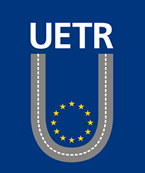15 Jul UETR welcomes the “Fit for 55” climate goals but expresses concerns over the impact of ETS on transport SMEs and consumers.
Brussels, 15 July 2021
FOR IMMEDIATE RELEASE
UETR welcomes the “Fit for 55” climate goals but expresses concerns over the impact of ETS on transport SMEs and consumers.
UETR fully supports the protection of the environment and the objective of climate neutrality by 2050 and emissions reduction by 2030. The “Fit for 55” package constitutes a significant step towards these goals.
UETR welcomes the proposal for Regulation on the deployment of alternative fuels infrastructure and its pragmatic approach to electric infrastructure targets in relation to commercial vehicles registered in Member States. There is a threshold to reach for the meshing to be dense enough to meet businesses’ expectations, needs and investment. Reference to presence of recharging points for trucks in parking areas is also positive.
UETR supports energy mix and technology neutrality to be ensured taking into account both users and flows. Further support to deployment of LNG, which proved to be quality and reliable fuel compatible with road transport sector, is key for the ecological transition. CNG, NGV and bio NGV must also be encouraged.
Technical harmonization, use of digital technologies and full and transparent information are also important elements in the revised Directive to address the issue of different payment systems, and the lack of adequate information for haulers.
UETR also takes note of the proposal of a new separate ETS for road transport and expresses its concerns that it would increase fuel prices and impact the consumers. Small haulers do support sustainable mobility but investment already made must be taken into account – now more than ever in light of COVID 19 crisis and urgent needs related to recovery. With the fleet evolution very likely to maintain a significative number of internal combustion engine vehicles and diesel in the next 10 years, if not provided with adequate support carriers, already in difficulty, will have no choice but to pass on the increased costs to customers, and thus to consumers.
In this regard, UETR stresses the importance of ensuring a strict and broad earmarking, for all national revenue streams to be used for investments specifically in road transport and infrastructure to meet Green Deal goals. Thus far, small companies have made huge efforts to go green. The new system must accompany and support them along the road to low emissions mobility, through the targeted use of the entire amount of revenues raised from ETS. This is a realistic approach to a successful rolling out of LNG, hydrogen or electric vehicles towards a net-zero emissions economy. The effectiveness of the proposed Climate Social Facility to fully mitigate the social and economic impacts remains to be verified.
Detailed information on the Package available here





No Comments